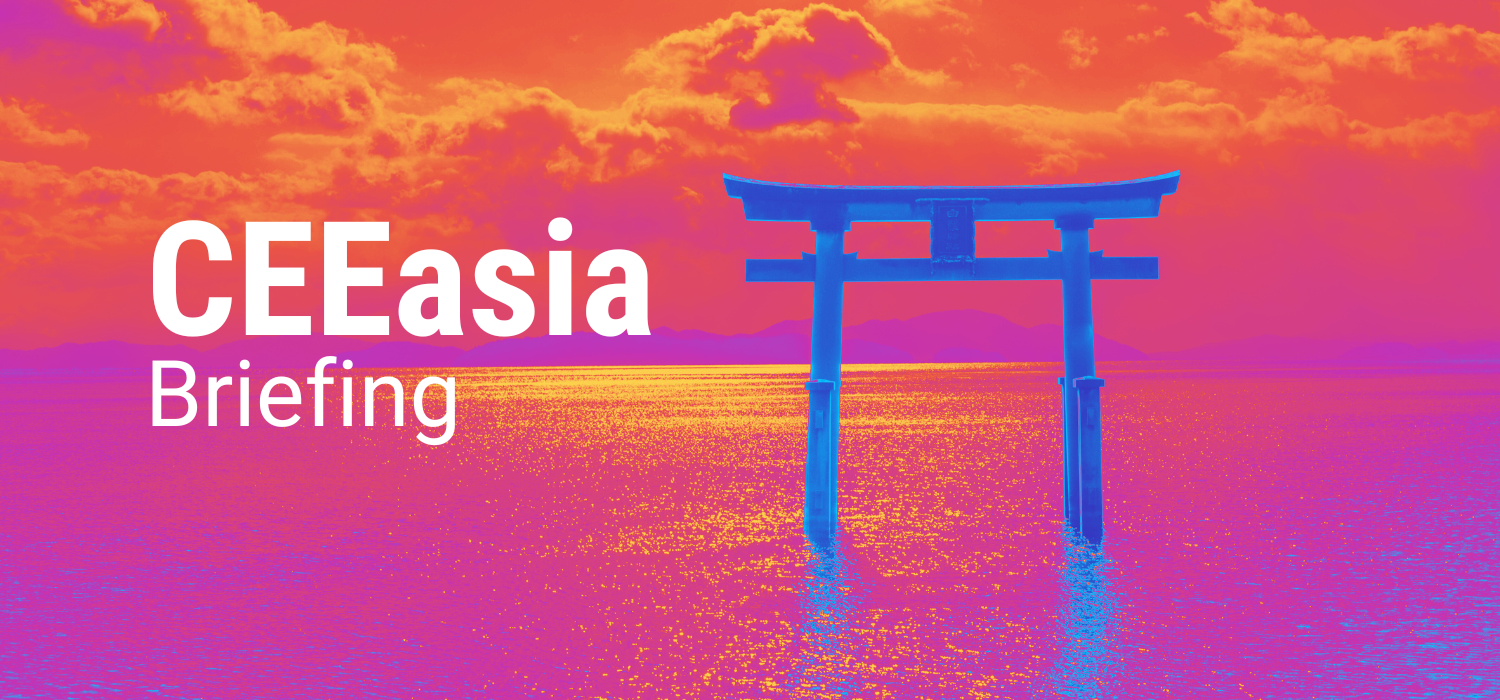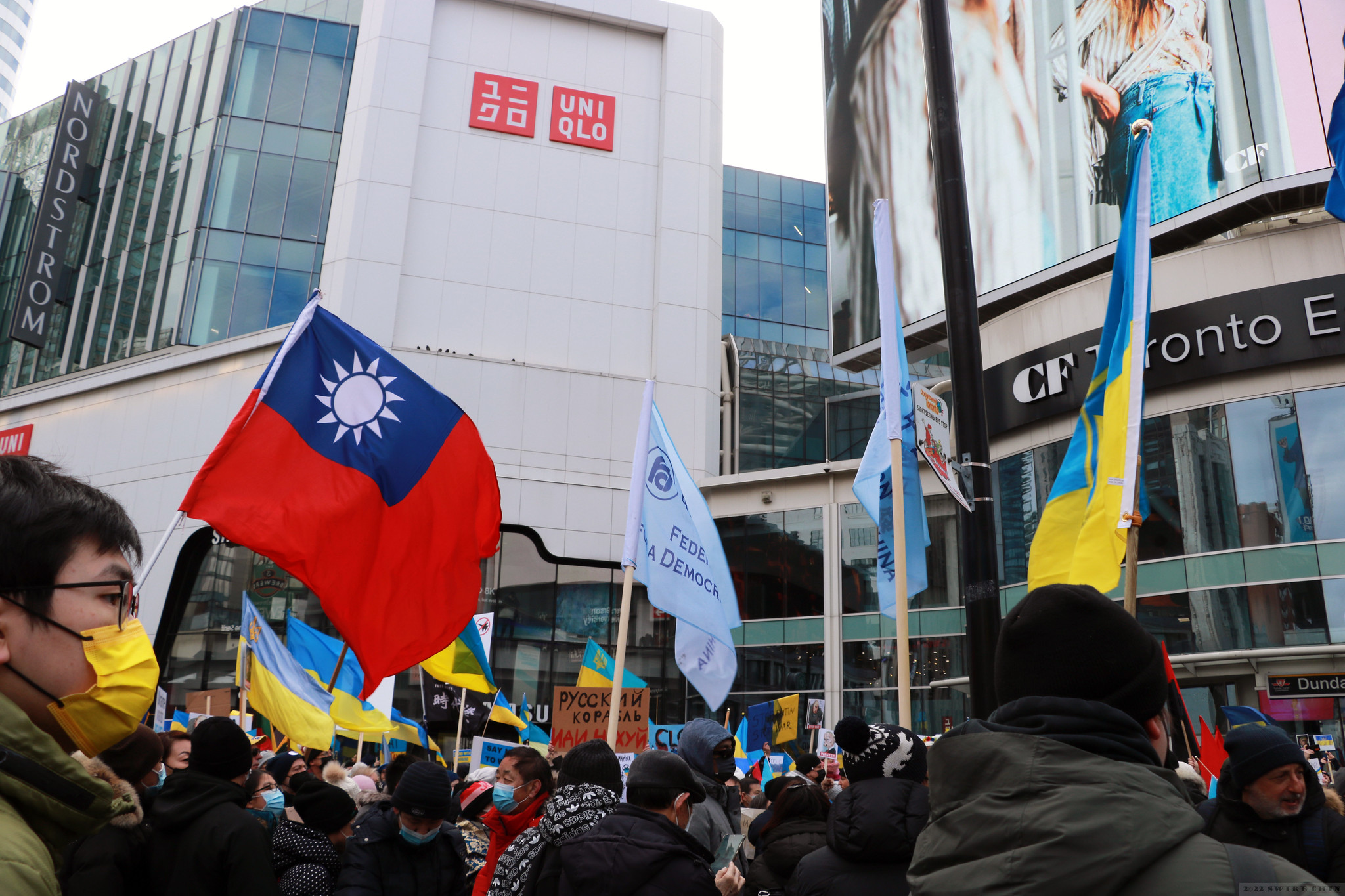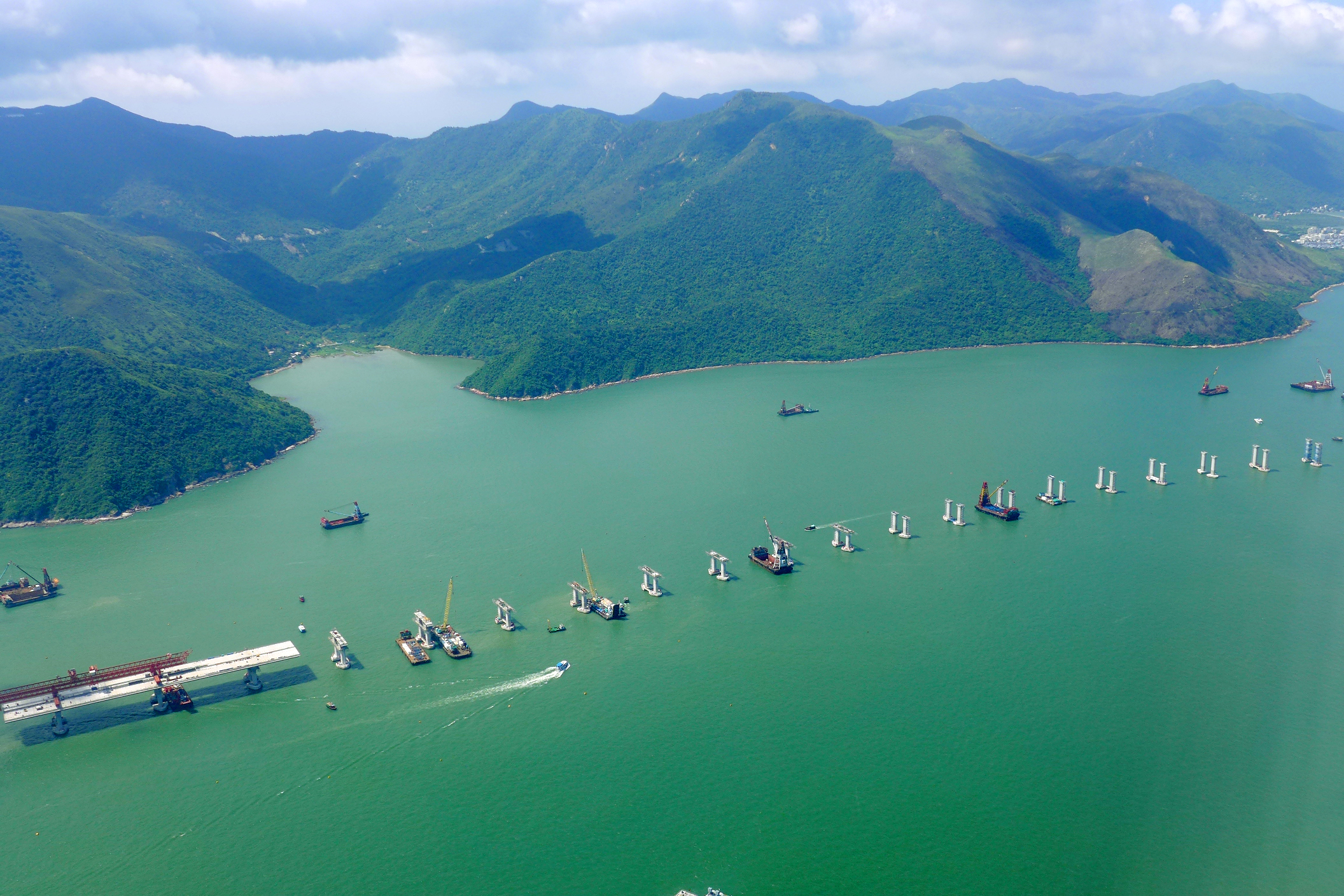Welcome to the 44th issue of the #CEEasia Briefing.
In this issue, we dissect the following topics:
- TSMC to open a foundry in Dresden
- Potential Slovak-Korean cooperation in the field of robotics
- China’s participation at the Ukraine peace talks in Saudi Arabia
- EU to invest in India’s renewable energy sector
If you like what you see, please forward this message to your friends and colleagues who can subscribe here.
Do you need to know more about East Asia? Don’t hesitate to shoot us a message about custom analysis tailored to your needs.
1. TSMC to open a semiconductor foundry in Dresden
What is going on… The world’s largest semiconductor manufacturer, Taiwan Semiconductor Manufacturing Company (TSMC), will invest €3.5 billion in a joint venture with European firms Bosch, Infineon Technologies, and NXP Semiconductors to construct a chip-making plant in Eastern Germany. This investment is significant for Germany’s semiconductor industry, the broader EU Chips Act goals, and the geopolitical dynamics in the semiconductor sector.
Going deeper… The decision by TSMC to establish a chip manufacturing plant in Dresden, coupled with Intel’s existing facility in Magdeburg (both located in Eastern Germany) has several implications. Germany has committed to enhancing its semiconductor manufacturing capacities, driven by the increasing need for microchips across multiple industries, particularly in the automotive sector. Confronted with a shortage of semiconductors during the COVID-19 pandemic, Europe became more conscious of its extensive reliance on Asia for its semiconductor needs.
Currently, Germany stands as the sole European nation in which these major semiconductor companies have made investments. This situation highlights the country’s appeal as a hub for business and its increasing significance within the semiconductor sector. Additionally, it emphasizes the presence of a skilled workforce and strong research establishments.
Moreover… The Taiwanese and European firm collaboration reflects a broader EU Chips Act strategy to enhance competitiveness and resilience in the semiconductor sector towards the US and Asia. The EU aims to raise its global semiconductor market share from 9 to 20 percent by 2030, a goal that aligns with TSMC’s investment.Top of Form This investment could kick off the European semiconductor industry, fostering innovation and economic growth.
Globally… The geopolitical context adds another significance to this investment. The investment takes on an added importance due to the geopolitical situation. As tensions rise concerning Taiwan, the semiconductor sector has gained prominence as a strategic battleground. China’s efforts to lay claim to Taiwan and enhance its semiconductor capabilities have led Western nations to react by forming partnerships with major semiconductor companies such as TSMC. The involvement of Dutch company NXP Semiconductors in the joint venture also reflects a concerted effort among Western countries to safeguard critical sectors from geopolitical vulnerabilities.
2. Potential Slovak-Korean cooperation in the field of robotics
What’s going on? A South Korean delegation, comprising representatives from various Korean companies (Doosan Robotics, Hanwha Aerospace, Neuromeka, Daliworks, Curexo, Brils, RIFA Asset Management, and Vrillar) as well academia (Yonsei University), visited Slovakia between 29th May and 2nd June. The invitation was issued by the Embassy of the Slovak Republic in Seoul, with the purpose to investigate potential avenues for mutual cooperation and investment prospects, particularly in the realm of technological innovation.
Going deeper… The mission comprised various activities designed to bolster cooperation and promote interaction. The delegation’s itinerary included presentations at the Slovak University of Technology, visits to governmental establishments, participation in the GLOBSEC Forum and business briefings on the Danube Tech Valley Initiative. Furthermore, the delegation engaged with various Slovak companies to gain knowledge about the technological advancements in Slovakia as well as interacted directly with officials and representatives from the field. Additionally, a visit to Žilina aimed to identify opportunities for investment opportunities and potential collaborations. Notably, the memorandum of understanding was signed between Yonsei University and Slovak University of Technology to simplify the admission process for students applying for graduate or postgraduate programs in robotics. Michal Bordean, head of Economic and Commercial Affairs at the Embassy of Slovakia in South Korea, highlighted the embassy’s recognition of significant prospects for cooperation in fields such as collaborative and service robotics, AI, green technologies and academia.
This means… Overall, the mission opened avenues for future investment and partnerships between Korean and Slovak business as well as it resulted in knowledge exchange and academic cooperation. The Slovak Embassy is arranging further business events for both Korean and Slovak robotics entrepreneurs in Slovakia, all aimed at exploring the robotics potential within the country, Bordean added.
3. China’s participation at the Ukraine peace talks in Saudi Arabia
What is going on… Saudi Arabia hosted two-day international talks gathering 42 nations, including China to discuss the potential peace resolution to the war in Ukraine. China has strategically maintained diplomatic ties with both sides.
Going deeper… In June, a similar event took place in Copenhagen with fewer attendees and without the participation of China and Russia, even though China had been invited. The peace summit in Jeddah was the second of its kind. Unlike Denmark, Saudi Arabia has maintained a relatively neutral stance in the conflict and has not openly taken sides in the war. The talks in Saudi consisted of the full spectrum of countries – members of the BRICS, the Middle East, and Western countries, as well as the UA representative, to prompt a broader view on the path to peace in the Ukraine war. Despite skepticism about China’s continuing economic and security ties with Russia, the EU has welcomed greater Chinese involvement in mediation. Zelenskyy has repeatedly expressed an open attitude towards cooperation with China and refers to the Saudi initiative as a way toward a “global peace summit.”
It means… The summit highlighted Beijing’s pragmatic approach to international relations; improving its diplomatic ability to maintain a delicate balance, but still acting in Moscow’s favor. China’s participation in the Jeddah talks comes from strengthening its bilateral relationship with the Islamic country, which is indicative of ongoing shift in the balance of power in the Middle East. Simultaneously, Chinese Foreign Minister Wang Yi also compensated for his Russian counterpart’s absence one day after the weekend summit with a phone call to discuss “the Ukrainian conflict and other shared concerns”.
4. EU to invest in India’s renewable energy sector
What’s going on? The European Investment Bank (EIB) confirmed an investment of around €1 billion in India’s green energy sector, mainly production of green hydrogen, solar panels and wind energy. India is EIB’s most significant market outside the EU with its importance on constant rise.
Going deeper… India is currently the largest recipient of credit facilities from several multilateral lenders such as the International Bank for Reconstruction and Development (IBRD, the World Bank Group), or Asian Development Bank. It is also the principal recipient of EIB assistance outside Europe. EIB’s investment in India totals to €5 billion and has so far been used mainly in the infrastructure sector. But the EIB has also become the largest multilateral financier in climate action. India’s significance in terms of climate change and untapped economic potential are uncontested, therefore gaining increased recognition by investors. It is the third largest power consumer, second largest coal producer and consumer and the third largest producer of carbon emissions (nb: not per capita). What is more, it has recently become the world’s most populous country and records thriving economic growth. These factors together lay further expectations on its rising power needs, total primary energy demand and potential for economic development.
This means… Indian government aims to attract investments in green industries not only to satisfy its domestic needs but also to become one of the global manufacturing and exporting hubs, serving the aims of PM Modi’s flagship initiative “Make in India”. Another government goal seeks to bring production capabilities of green hydrogen to 5 million tonnes per annum by 2030. Except the EU, Japan and Singapore also showed interest and are in discussions with Delhi for hydrogen supplies. External creditors and investors are aware of the potential that the Indian market holds, putting Delhi in the spotlight for money inflow and gradually diverting attention away from China.
Quick takes on CEEasia developments
TAIWAN | Estonia expressed interest in reciprocal opening of cultural and trade offices with Taiwan to expand bilateral cooperation. The talks between chairman of Estonia’s foreign affairs committee Marko Mikhelson and Taiwan’s president Tsai Ing-wen took place on the sidelines of the Baltic States’ parliamentary visit to Taipei.
CHINA | Beijing’s Foreign Ministry has rescheduled the visit of the European head of diplomacy, Josep Borrell, to the fall season. The invitation for the visit came from Wang Yi, the reinstated Foreign Minister, after China canceled Borell’s trip in July to meet Qin Gang, the then-Foreign Minister, who was unexpectedly relieved of his post.
JAPAN | The Czech Republic and Japan agreed in principle on an Agreement for Air Services. The Agreement should grant exemption of customs duties, determine tariffs, safety and security measures, and routes for the operation of scheduled air services.







